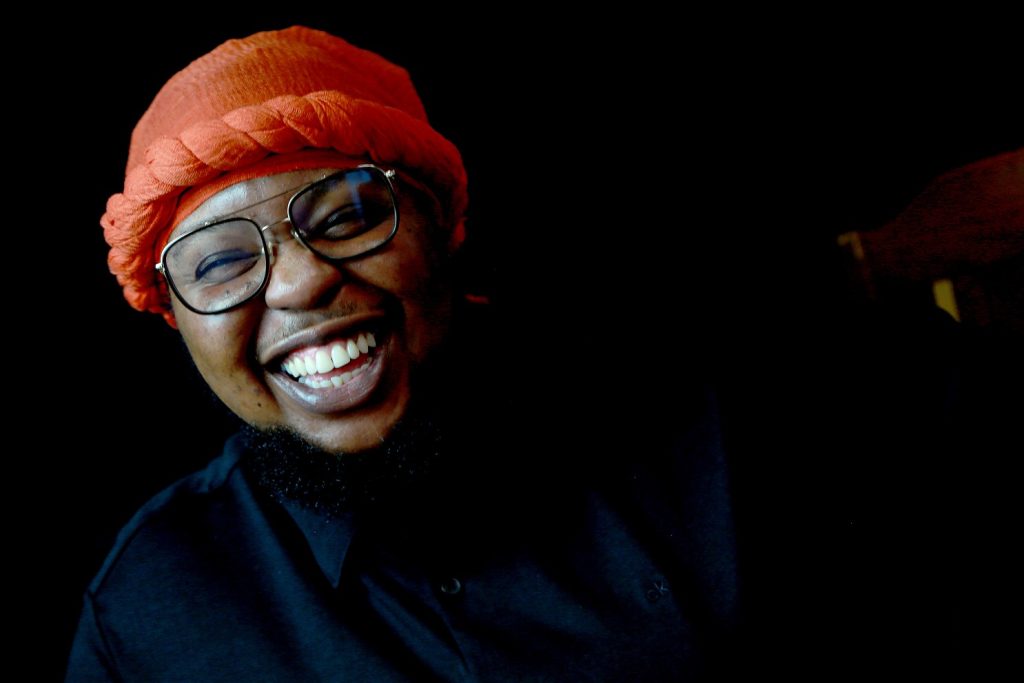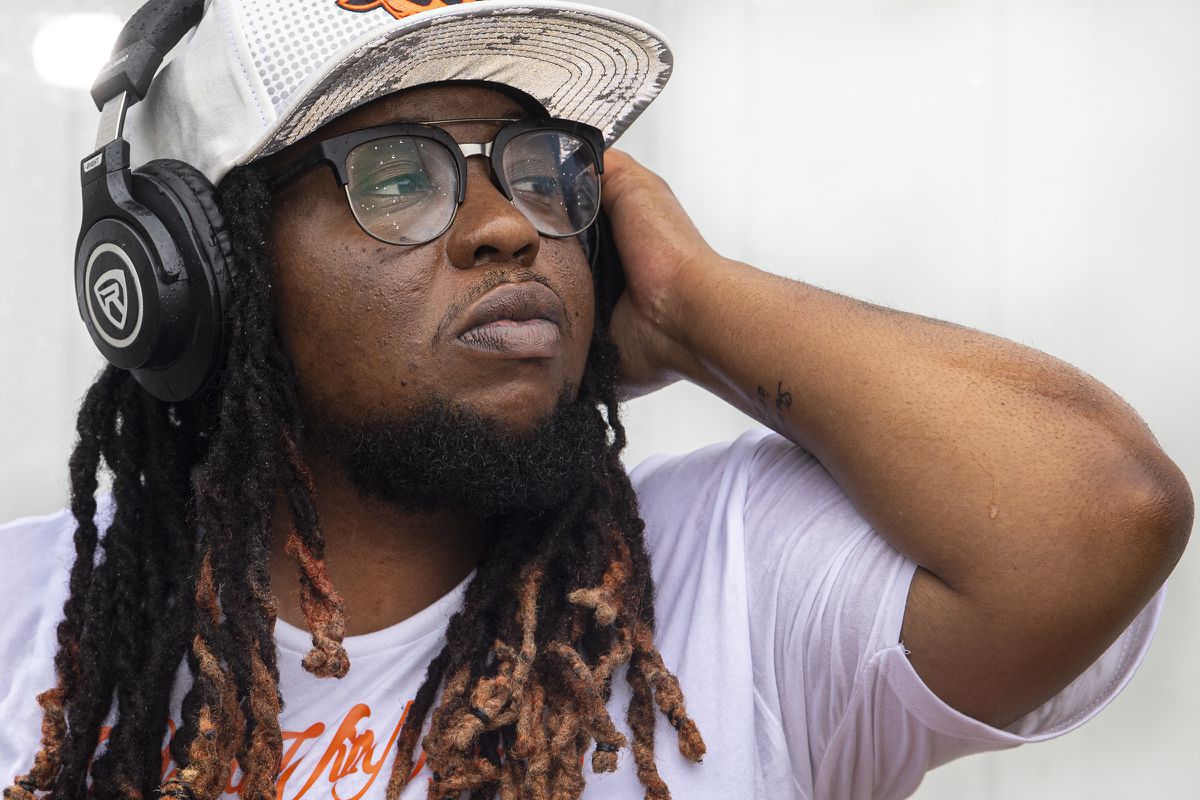B.L. Shirelle was notorious in her neighbourhood by the time she was a young adult. She had been managing her own crack cocaine business since she was 12 years old. Her life consisted of countering struggles back to back in her hometown of Philadelphia in the United States.
One day, on a stroll through her neighbourhood, business as usual, she noticed a scuffle from across the street. Though there was a police officer on scene, she thought to intervene and did so to bring the tension down between the fighters.
The officer who was in plain clothes took hold of his gun and so did BL in response. She shot first and they had an exchange of fire. BL Shirelle, now shot in the leg, in the back right by her neck, lay on the floor struggling for dear life.
Her young life flashed between her eyes.
Born Monique Mull, B.L. Shirelle (her stage name) lived with her mother who was a crack addict. Her father was not present in her life. Her grandmother took care of Shirelle, her siblings and her mother.
‘We were just coming out of losing a house or something like that. The relationship between my mother and I was a lot different from other mother-daughter examples. We were almost like sisters – two kids trying to figure life out together.
It wasn’t a case of their ages being so close together that made them like sisters as if Shirelle’s mother had been a teen mum but rather both of them did not have any responsibilities to keep in their homes.
‘My mother didn’t do anything. My grandmother was the person who paid all her bills, my grandmother was the person who took care of us, she was the one who cooked the meals that we ate everyday. She didn’t live with us, she was managing two households because my mum was an addict.’
But her mother taught BL Shirelle and provided street knowledge to her daughter alternatively to what a mother whose not addicted to drugs will do.
‘My mother was capable of mothering in her own way. When I turned seven she actually told me where to find the weapon in the house in case I was in danger for my life. Often people now and then would say what type of mum tells a seven-year-old where a gun is but she knew I would never play with it, or show off to my friends.’
‘She would say from time to time, hey I messed up, I’m on crack. She would also say hey I’m leaving the house don’t tell grandma and I would try to hold back certain things. But when you are seven and it’s been five days since your mum’s not at home, and there’s no food, with two younger siblings it got to the point where I had to call my grandmother to step in because we didn’t have anything to eat.
BL Shirelle eventually took over the role of her grandmother and became responsible very quickly to take care of her siblings. But she would still fall.
Without a watchful eye on BL Shirelle and her mother bringing her addict act home, BL Shirelle learnt the business of the illegal trade.

A teen in crime
To combat what had become of her life, she was introduced to poetry by one of her teachers who encouraged her to express her feelings in words and in performance. It worked for a while till she left school to take after her mother’s drug selling business.
‘I probably started smoking weed when I was 11, I probably started taking pills when I was 12, and every year it seemed like I added a new drug to the list and I stopped going to school.
I left school because I felt like an adult going to school amongst children. When I was in middle school, I used to drive to school, I used to go to class high on weed.
At home, dealing in her newfound trade, though illegal, BL Shirelle says she and her mother cleared a minimum of $10,000 a day for their prime cocaine.
After hitting the jackpot, though in an illegal and unlicensed trade, B.L. Shirelle was living her life like it was golden. She bought a new car every month after crashing the previous from being in accidents with no care in the world.
As an adult now, however she says she realises how crazy all of it was.
By the time she was 17, everyone in the neighbourhood knew what she and her mother were up to, including the police. They had been arrested three times together already. The fourth however, she was arrested alone this time round, for shooting at an undercover police officer.
She was charged with aggravated assault and sentenced to six to 12 years in prison. Her life took a turn.
‘My judge actually said at the trial that he thought I was caught in a rock and a hard place. To me, in my opinion he gave me a very light sentence and he told me to just move on with my life when I got out.’
‘I almost had it’
Once she got out of prison on parole, she married her wife who she met in prison.
‘I developed lifelong friendships, a marriage, all my friends are from that first step. The six years flew by really fast. I grow facial hair without taking any hormones so I was a commodity when I got to prison because I looked like a man. So, I spent the time dating, working and getting an education.
It’s almost like your college years; they were my college years. So it was literally like that and it was fun.’
B.L. served six years and then moved in with her future wife and her wife’s son. The two women resolved to stay away from crime but BL struggled.
‘When I came home, in 2011, things were a lot different as far as the resources. They didn’t have room for violent offenders. I was working at McDonald’s at the time and I wasn’t patient, I didn’t have the self confidence; no amount of my intelligence mattered; it was a reality check.’
It was beyond humbling and I don’t think I’ve ever been in that position. The way that I didn’t value money at the time, working on my feet and checking out with $500, I used to cry.’
The job at McDonald’s was so depressing that B.L. decided to buy some drugs.
She got caught. Her wife got caught too because she was with BL when she got arrested and both of them were therefore sent back to prison.
Back behind bars
This time it wasn’t fun.

B.L.’s wife’s son was then sent to his grandparents house and later moved in and out of psychiatric centres because his behaviour changed due to trauma. This also happened at the same time when her wife’s grandmother passed.
‘Her grandmother was like my grandmother. Her grandmother raised her just like my grandmother raised me. It was one of the things that brought us close, that we love our grandmothers. I felt absolutely guilty and ashamed.’
‘It was too much for me. I was just super depressed, super disgusted with myself. I couldn’t even call my grandma. I was really embarrassed and my wife hated me. She never not once said it, or never said it was my fault, she never said it with her mouth but she didn’t have to, I could tell.’
It was the longest three years of her life she says. ‘The longest three years multiplied by two’ and worse than her first six years in prison’.
The first time she had nothing to lose. This time around she lost everything and changed people’s lives in the process. The consequences were damning.
A poetic turnaround
From the depths of her despair BL found her voice again towards the end of her three-year sentence she wrote a song and performed it in the prison with three other women, as part of a TEDx event.
The video got a few thousand views including a man who goes by the name Fury Young. He had an idea for a concert album about racial injustice in the American prison system to be written and performed by musicians who’d been behind bars. It was to be called Die Jim Crow. Fury wanted BL to be part of it.
‘He had a format already laid out about the album.’ The blueprint for the album started with a history lesson in music, through to injustice in the 1980s, to the war on drugs, and then effects of solitary confinement. ‘As I’m reading the format, I’m blown away. It sparked my motivation to start writing again.
This became her way out of cycle that kept her locked in.
She wrote ‘First Impressions’, a song about the first time going into prison and ‘Headed to the Streets’, a song about being scared to finish one’s sentence and being released to the general public. Both featured on the album.
B.L. Shirelle together with the other inmates on the album rose to fame quickly. ‘Headed To The Streets’ was premiered on Rolling Stone, the feedback for the song was phenomenal and the overall reception of the album was equally incredible.
That new life shocked her.
‘Remember this started out as just an album idea. So there was a lot of stuff we really weren’t ready for because the idea just kept growing. We went from an album to an organisation to a record label.’
That record label is named after their debut album, Die Jim Crow and it’s for musicians who have specifically been in prison or are still in prison.
In March 2020, B.L. came off parole and is officially a free citizen. She now visits prisons to help inmates make music and she also helps run the record label as Deputy Director.
Her wife also forgave her, and their son is doing well, she says. They are living the family life they dreamed of having. Her mother has been sober for 15 years and is going strong.














